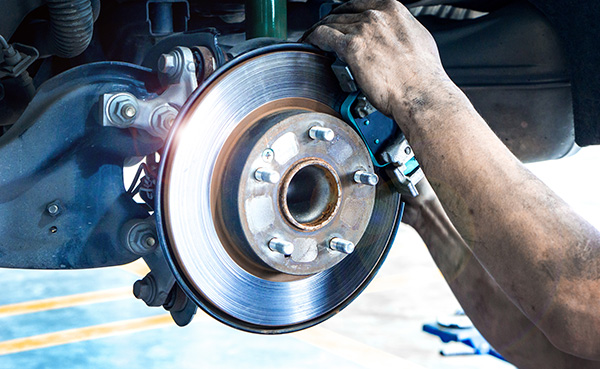Posted on 7/26/2024

Car batteries are extremely important to your vehicle's electrical system, providing the power needed to start the engine and run various accessories. Yet, they often remain unnoticed until they fail. Apprehending a car battery's lifespan and how to extend it is crucial for any vehicle owner. Let's explore what determines a car battery's lifespan and how you can ensure it serves you well for as long as possible. Factors Influencing Car Battery Lifespan Car batteries don't last forever, but several factors influence their longevity. On average, a car battery lasts between three to five years. However, this can vary based on several conditions: 1. Climate Conditions Temperature plays a significant role in battery life. Extreme heat can cause battery fluid to evaporate, leading to damage. Cold temperatures, on the other hand, can thicken the oil, making it harder for the engine to start and putting extra strain on the battery. If yo ... read more
Posted on 6/27/2024

When it comes to car maintenance, wheel alignment often gets overlooked. Yet, it plays a critical role in your vehicle's performance. Think about it—when your wheels are properly aligned, your car handles better, your tires last longer, and you save money on fuel. But what exactly is wheel alignment, and how does it impact your car's performance? Understanding Wheel Alignment So, what is wheel alignment? Simply put, it's the adjustment of the angles of the wheels so that they are set to the car manufacturer's specifications. The primary angles involved are camber, toe, and caster. Each of these angles affects how your car handles and how your tires wear over time. When your wheels are aligned correctly, they point in the right direction, and your car drives smoothly. If they're out of alignment, you'll likely notice issues like uneven tire wear, steering problems, and decreased fuel efficiency. How Misalignment Affects Yo ... read more
Posted on 5/29/2024

Are you prepared for unexpected roadside emergencies? A well-equipped car emergency kit can make all the difference in such situations. From breakdowns to accidents, having the right supplies on hand can help you stay safe and get back on the road quickly. Let's find out how to build the perfect car emergency kit to ensure you're ready for whatever comes your way. Essential Items for Your Car Emergency KitBasic Tools and Equipment Include items such as a flashlight, jumper cables, a tire pressure gauge, and a multi-tool. These tools can help you address common mechanical issues and perform basic repairs on the go. First Aid Supplies A well-stocked first aid kit is important for treating minor injuries sustained during accidents or roadside emergencies. Make sure your kit includes bandages, antiseptic wipes, gauze pads, adhesive tape, and pain relievers. Emergency Supplies Pack items like a reflective vest ... read more
Posted on 4/28/2024

Have you ever been caught in a rainstorm with ineffective windshield wiper blades? It's a frustrating experience that can compromise your visibility and safety on the road. We will help you choose the perfect windshield wiper blades for your car. From understanding different blade types to selecting the right size, we'll cover everything you need to know to ensure clear visibility in any weather condition. Understanding Your Options When it comes to windshield wiper blades, not all are created equal. There are several factors to consider when selecting the perfect blades for your car: 1. Blade Material and Design Different blade materials, such as rubber or silicone, offer varying levels of durability and performance. Silicone blades, for example, are known for their longevity and resistance to harsh weather conditions, making them a popular choice for drivers in areas w ... read more
Posted on 3/28/2024

Brake rotors play a necessary role in ensuring a safe and efficient stopping mechanism. Also known as brake discs, they are the flat, disc-shaped components situated behind each wheel. When you apply the brakes, the brake calipers squeeze the brake pads against the rotors, creating friction and slowing down the vehicle. This process converts kinetic energy into heat, making brake rotors a critical part of the braking system. Causes of Warped Brake Rotors Several factors contribute to the warping of brake rotors, affecting their smooth and even surface. Common causes include: Heat Buildup: Excessive heat generated during heavy braking or prolonged use can lead to rotor warping. This heat causes uneven expansion and contraction of the rotor material. Poor Quality or Worn Brake Pads: Low-quality or worn brake pads can produce uneven pressure on the rotors, leading to ... read more